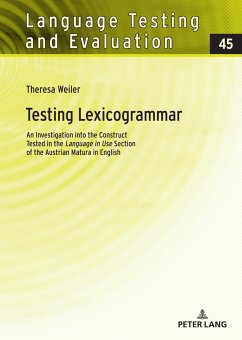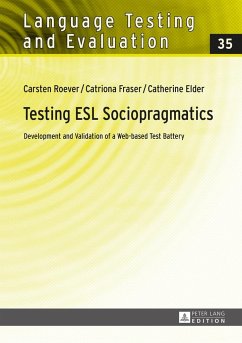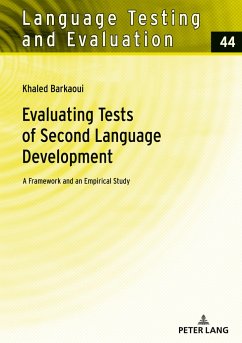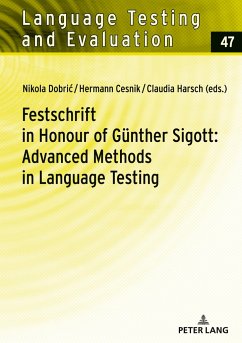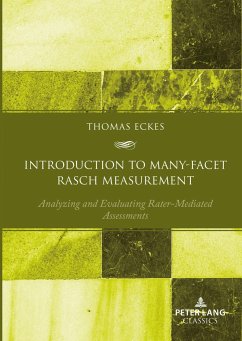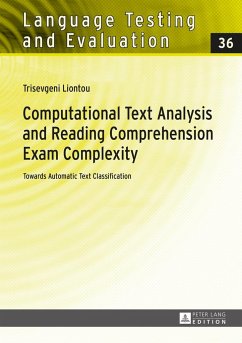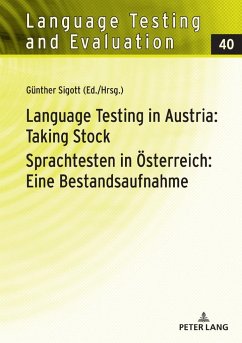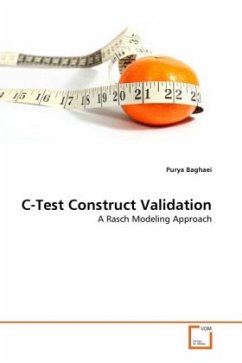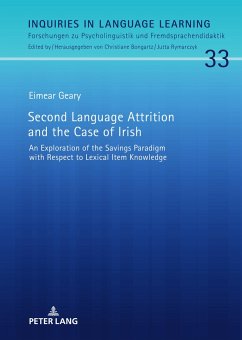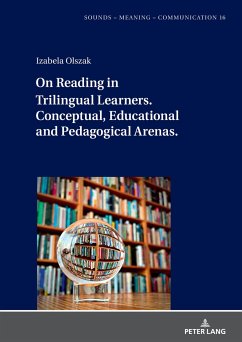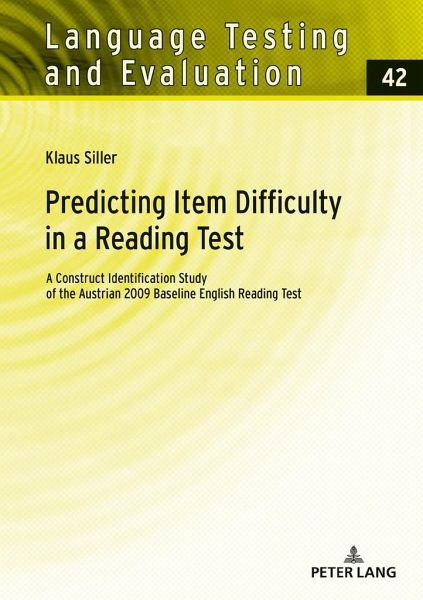
Predicting Item Difficulty in a Reading Test
A Construct Identification Study of the Austrian 2009 Baseline English Reading Test
Herausgegeben: Sigott, Günther
Versandkostenfrei!
Versandfertig in 6-10 Tagen
64,20 €
inkl. MwSt.

PAYBACK Punkte
0 °P sammeln!
In this book, the author investigates a central issue in language testing research: What are the key features that contribute to item difficulty in a reading test? Results of various statistical analyses of the multiple-choice reading items from the Austrian 2009 baseline reading test show a significant correlation between empirical item difficulty and both cognitive processes and metacognitive strategies. The findings thus provide evidence of the construct validity of the baseline reading test on the one hand, but are equally relevant to teaching practice on the other hand. The teaching of re...
In this book, the author investigates a central issue in language testing research: What are the key features that contribute to item difficulty in a reading test? Results of various statistical analyses of the multiple-choice reading items from the Austrian 2009 baseline reading test show a significant correlation between empirical item difficulty and both cognitive processes and metacognitive strategies. The findings thus provide evidence of the construct validity of the baseline reading test on the one hand, but are equally relevant to teaching practice on the other hand. The teaching of reading at lower secondary level in the Austrian context needs to focus more on cognitive processes of different complexity and the active teaching of metacognitive reading strategies.





